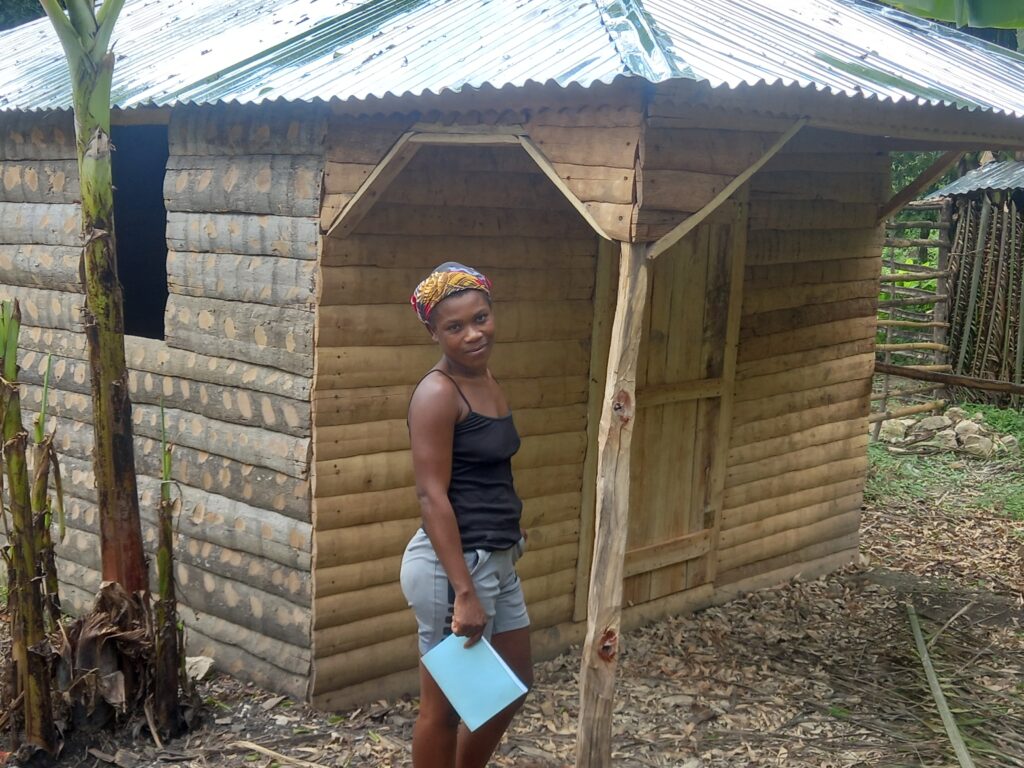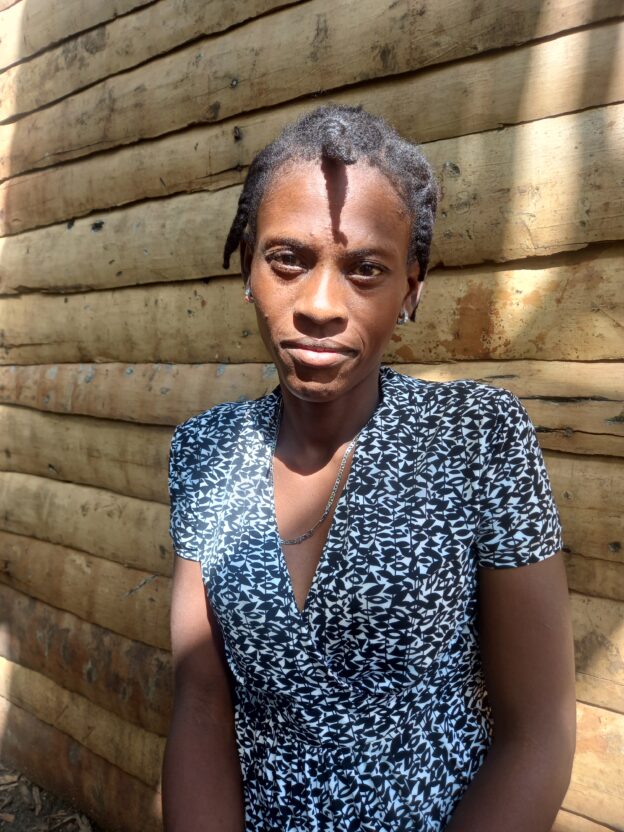Jocelyne Alcimé lives in Gran Boulay, on a hillside high above the main road that crosses Savanèt from west to east. She has a lot of responsibility. She and her partner have two children, but they also have her two younger sisters with them, and each of the younger women has a child or children of her own. Her younger brother lives with the couple as well. All told, eleven people reside in her home.
Back in 2018, the couple had had a good bean harvest, and they used it to buy 18 sheets of new roofing tin. They wanted to build a new home. But they haven’t had a good harvest since, and with no other way to finance the construction they were planning, the roofing just sat there.
The couple got by with their farming. They would sell an odd bunch of plantain now and again or some corn. They also ate much of what they grew.
Jocelyne asked the CLM program to give her goats and a pig, and her case manager bought her a large, healthy nanny with a small buck trailing behind it. Shortly after her buck was weaned, she sold it and replaced it with another young female. That second goat has since given birth to another buck. And as the moment approached for her to get the pig, she became worried about pig disease. She decided to ask her case manager to give her the money he would have used to buy the pig to buy another small goat, instead. Her very small herd is healthy and growing.
Going to and from the market in Laskawobas to sell crops, as she always had, has become prohibitively expensive. The fuel shortage driven by the breakdown of fuel distribution in Haiti has raised the price of all forms of transportation.She doesn’t have enough merchandise to make the trip worthwhile. Instead, she goes to the nearby market in Kolonbye. She can go on foot. She saves the money she would pay a motorcycle, but the prices she can get for her produce are lower there.
Her younger brother, though, is turning into an important contributor. He makes charcoal from scrap lumber, which Jocelyne sells. It creates extra income for them both.
She is is making especially good use of her VSLA, her savings group. “I make the maximum deposit every week.” Her steady deposits make it possible for her to take out loans. She recently borrowed 15,000 gourds, about $125. She used some of the money to buy materials that she needs to continue work on her new home. She and her partner are planning four rooms. And they are making progress. She gave the rest of the money she borrowed to her brother so that he can buy more wood for their charcoal business.
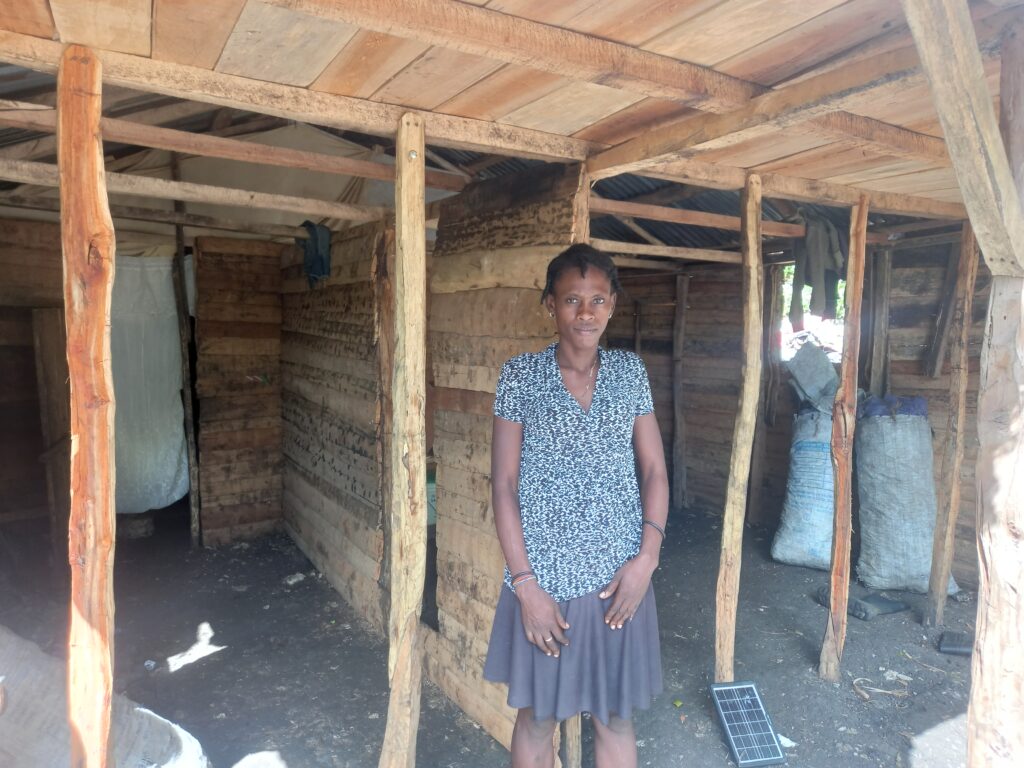
The savings group will distribute what everyone has saved at the end of the year, and Jocelyne has a plan for hers. She wants to use the money along with proceeds from sale of some goats, if necessary, to buy a vant bèf . That means a cow’s stomach, and it is a way to buy a cow relatively cheaply. You pay for the calf in its mother’s womb. She wants a cow because she sees it as the first step towards buying land.
But her mind is not just on how she can begin to accumulate wealth. She really wants to change her life. As a child, she never went to school. So it means a lot to her that she can now sign her name.
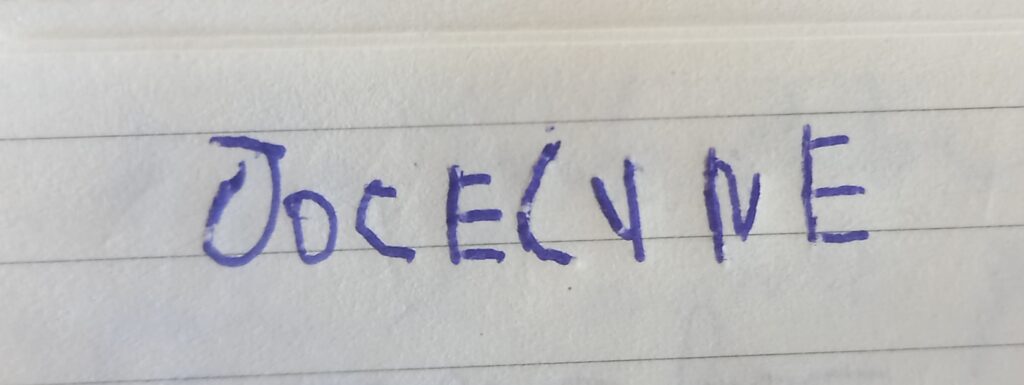
Now she anxious to start work on learning her last name.
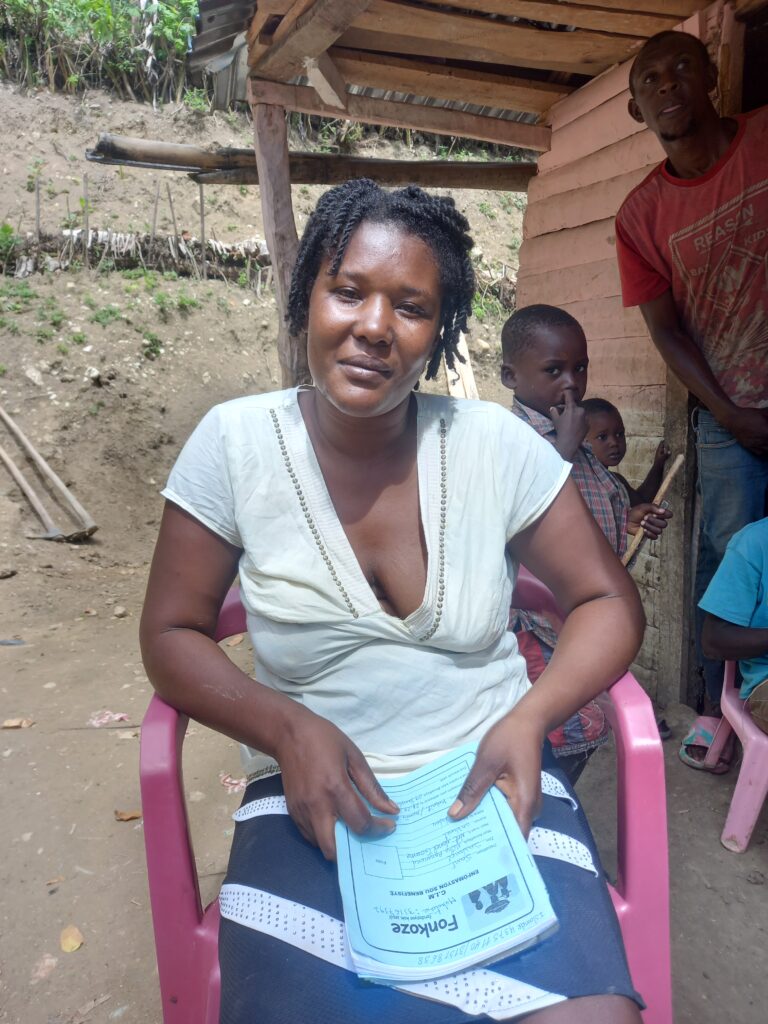
Mitha Gerome lives in Gwo Labou with her partner and their five kids. The main road through Savanèt passes just in front of her home. Her partner, Nenel is a farmer, planting his own crops, but also working as a day-laborer and neighbors’ fields.
Mitha has long managed a small business, selling basic groceries by the side of the road. But she has always struggled. She never had her own capital, but depended on a friend who was always willing to loan her money to buy merchandise. Between her business and Nenel’s day-labor, they always managed to send the children to school at the beginning of the school year, but the kids would often be sent home before the end of the year. They couldn’t always pay the full fees.
Like Jocelyne, Mitha asked the program to buy her goats and a pig, but once her two goats had been purchased she judged that the amount remaining to her would not be enough to buy a good pig, so she asked her case manager to give her the cash. She would invest it in her business. And that’s what she did.
She hasn’t had much luck with her goats so far. One of the two goats she received from CLM died. She bought one to replace it with money from her business, but the replacement was stolen.
Her business, on the other hand, has flourished. She goes to the large, busy market in Laskawobas on Wednesdays and Saturdays. She arrives early and buys a load of corn. She sits in her spot in the market to sell out the corn, then she takes the capital, along with any profit, and buys groceries that she can bring home and sell from a small stand on the road in front of her home. Sometimes she supplements her earnings by buying a load of produce — avocados, corn, beans — and takes it to market with her, selling it before she buys the day’s corn.
Her business model is working well for her. Every week she makes deposits in a sòl, a traditional form of saving in Haiti. It means that some of her money is out of her hands. Each time it is her turn to collect the pot, she has a lump sum she can add to her investment. She says proudly that she doesn’t depend on anyone else to manage her business anymore. She travels to market with 25,000 – 30,000 gourds. Up to $250. And all that money is hers.
She invests some of her profits in livestock, mostly poultry. She sees it as insurance. If her business suffers a setback, she can replace her loss by selling animals off. Her husband continues to contribute, both by farming and by charcoal production.
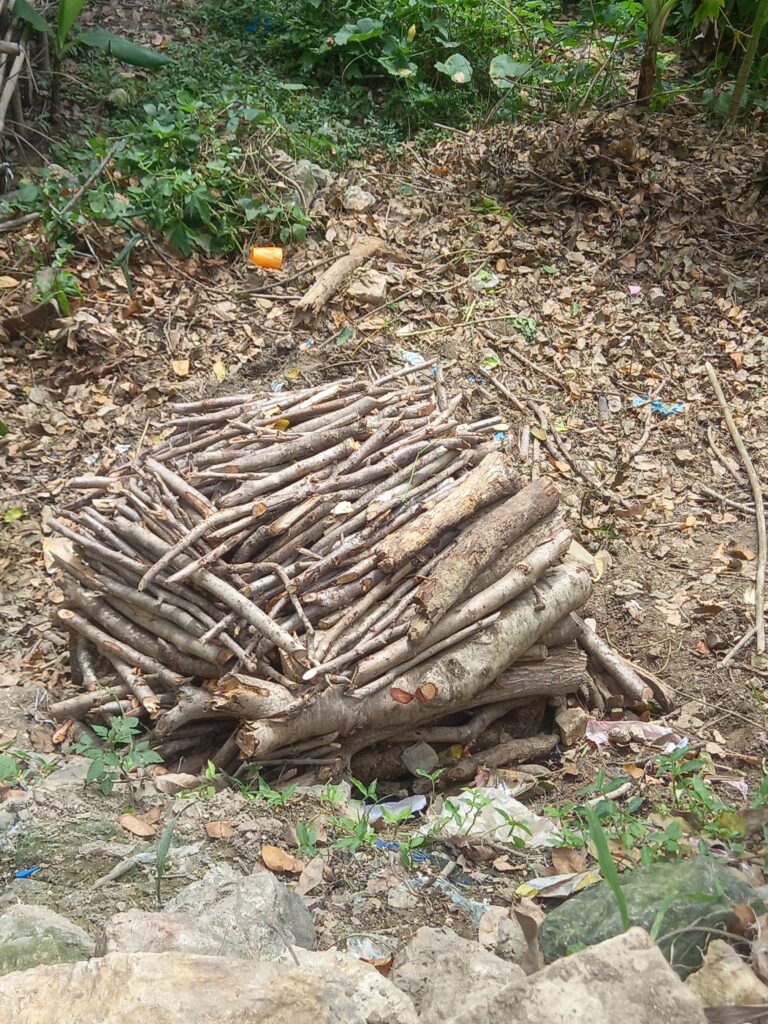
She and Nenel also continue to improve their home. They have built a latrine with the program’s help, and are getting ready to begin major repairs on their home.
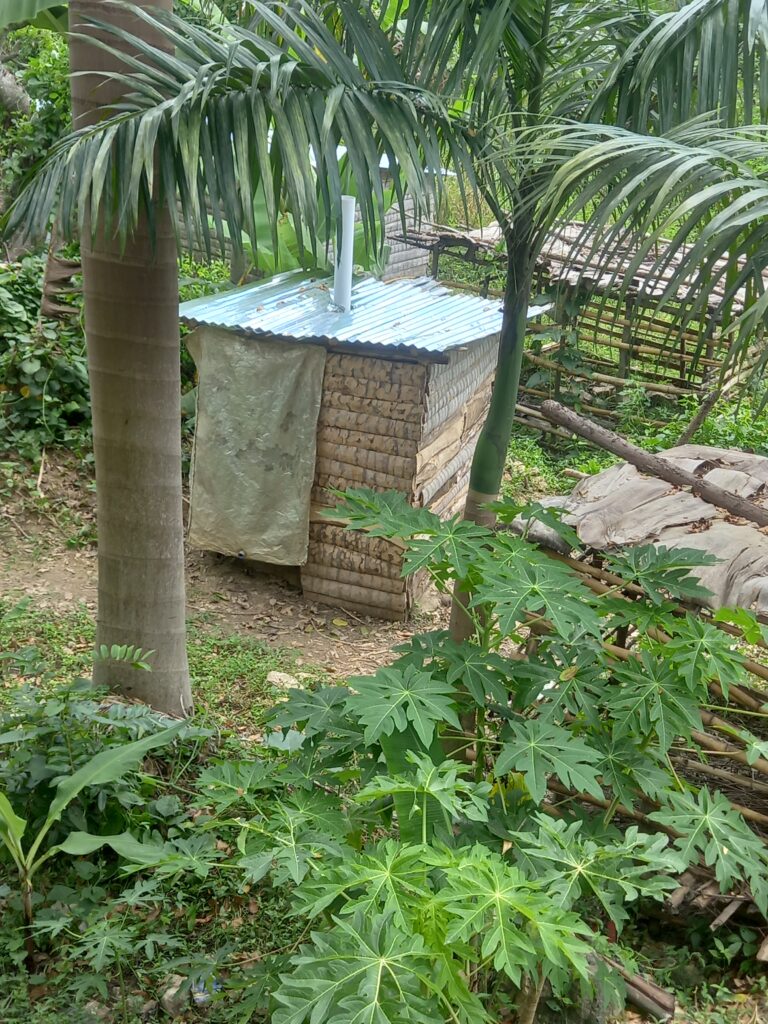
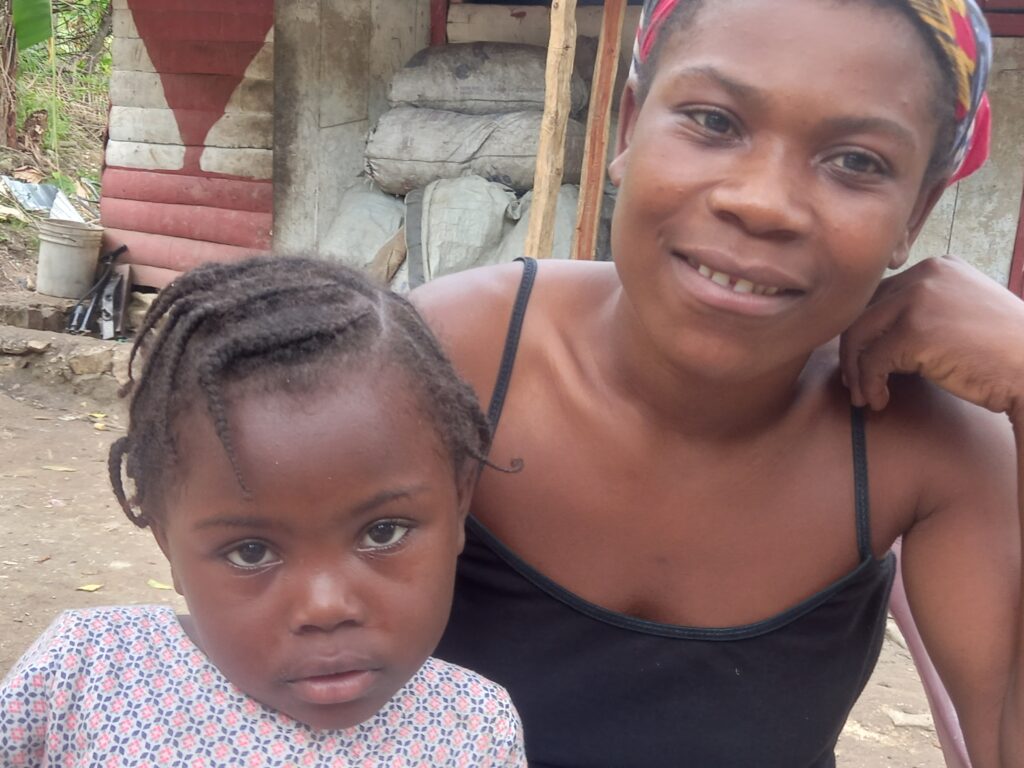
Germaine Desroslin lives in Kaledan, just west of Mitha’s home, along Savanèt’s one road. She, her partner, and their little girl live with her parents and her younger siblings. Her mother is also a CLM member.
She and her husband both lived on primarily on her parents’ income. Her father made most of the home’s income through charcoal production. Germaine added what she could through day-labor in neighbors’ fields. Her partner drives a motorcycle taxi. But because he does not own the motorcycle, or even have a steady leasing agreement with an owner, the couple can count on very little. He occasionally gets use of a motorcycle for a day, and after her partner pays the owner, there might be enough money left to pay for a meal or two.
Like Mitha and Jocelyne, Germaine asked the CLM team to buy her goats, and she received two. She’s had good luck with hers. One of them had a kid. She then bought a third goat with income from her small commerce, and that third goat had a kid as well. So, she’s got five now.
She has also started a small commerce. She saved about $40 from her weekly cash stipend, and bought flour and cooking oil. She started making fried snacks and selling them along the side of the road. She had never been in business before, but she was encouraged by her case manager, Islande, and Islande’s supervisor. Germaine and Islande thought about the different sorts of business Germaine might try, and she settled on fried snacks. “I heard that if you make them well you can increase your money fast.” She’s increased her investment by about 60% so far.
But she ran into a problem. “Flour started getting really expensive. So, I left that business, and entered another.” She buys produce at the market in downtown Savanèt, and transports it for sale in Mibalè or even Pòtoprens. She buys plantains or avocados or whatever she finds. It can be very profitable.
But it is also risky. Especially during a period when transportation Haiti is generally unreliable. A few weeks ago, Germaine lost three sacks of avocados. They grew overripe and rotted before she could get them to market for sale. So, she hopes to be able to return to her previous business soon. It involves less risk, and it keeps her close to home.
Germaine likes participating in her VSLA, and she plays an important role. Unlike almost all her fellow CLM members, Germaine had considerable schooling. She made it to the 11th grade. So she is her VSLA’s secretary, responsible for ensuring its books are clear and accurate. The group has just one problem. One of the members took out a large loan right before her mother became very ill. She hasn’t been able to repay the loan on schedule. “It’s not her fault. We will just have to go talk with her and her case manager. We’ll help her figure out whether there’s something she can sell to pay us back.”
Meanwhile, Germaine is making progress. She hopes that if she continues to take good care of her livestock, she will eventually be able to buy a cow. A cow, she feels, will bring her closer to her real goal, which is to buy land. “I am building my new home on family land, but I would rather live on land of my own.”
